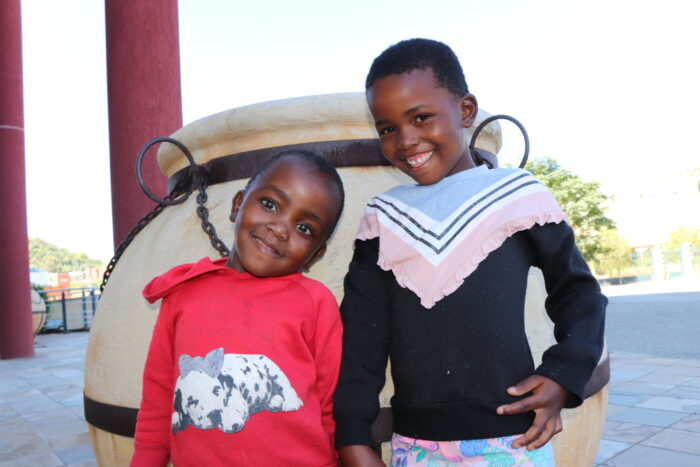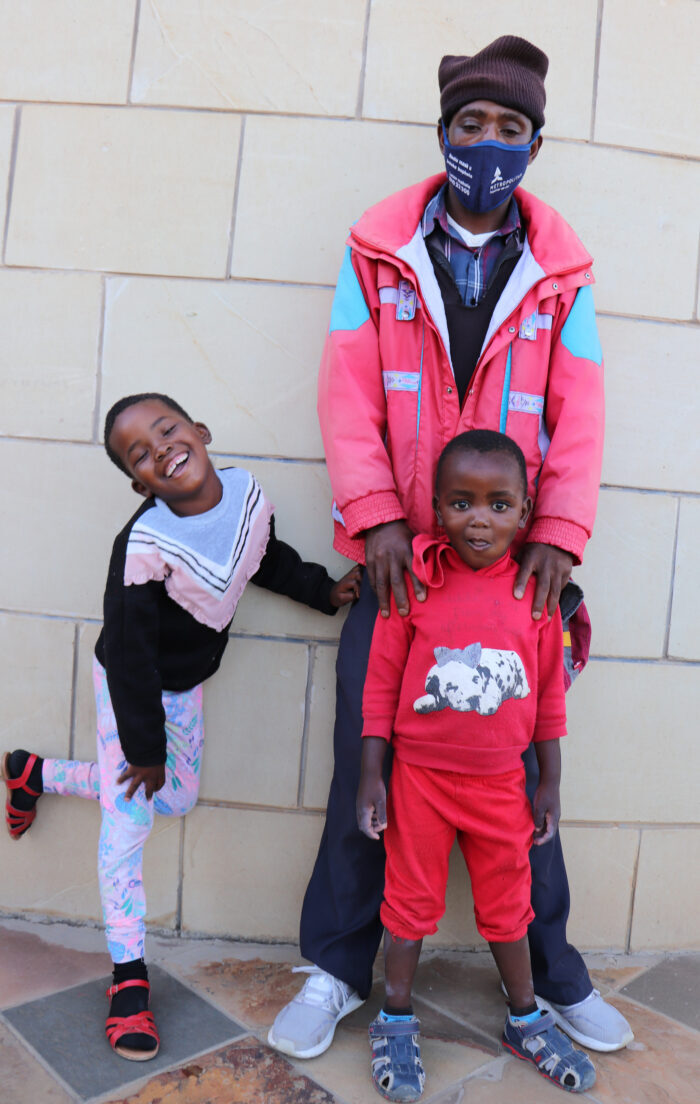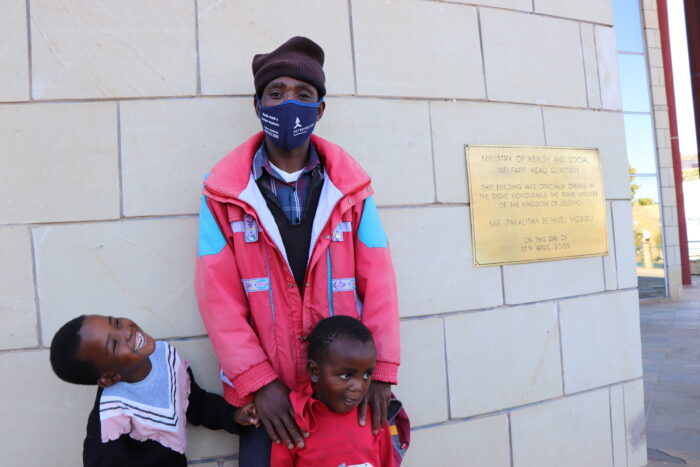
Rethabile Ntsu is a 6-year-old girl from Roma Village on the outskirts of Maseru, Lesotho’s capital. In 2020, she began experiencing fatigue, a persistent cough, and weight loss. After three months her condition had deteriorated. Her parents were worried that she was no longer playful, so they brought her to St. Joseph Hospital.
Rethabile was taken for a chest X-ray and was diagnosed with pulmonary TB. She was immediately enrolled in TB treatment. Two weeks later, when she returned to the hospital for a check-up and treatment refill, health workers saw that her health had clearly improved.
A contact tracer visited Rethabile’s home immediately after she had been confirmed with TB. Rethabile’s 4-year-old brother was screened for TB and found to be TB-free. Out of caution, however, he was started on TB prevention therapy.
Two weeks later, when she returned to the hospital for a check-up and treatment refill, health workers saw that her health had clearly improved.
The contact tracer also screened other family members and asked if anyone else in the household had ever suffered from TB. She found that the father, Tsebang Ntsu, had been diagnosed with TB in 2019 and had completed the treatment.

Like her father has done, Rethabile continued with her TB treatment for six months. At the end of treatment, she was tested again and was confirmed to be cured of TB.
“The health care workers were so supportive throughout the six months of treatment and also provided us with education to ensure we adhere to treatment and get cured,” says Tsebang.
In fact, TB is preventable and curable. Thanks to the diligence of health workers and contact tracers, Rethabile and her father are cured of TB, and the young brother was prevented from developing TB.
Samson Lanje, M.D., senior TB/HIV advisor with the Elizabeth Glaser Pediatric AIDS Foundation (EGPAF) says that most of the time children acquired TB from adults at home, at school or from neighbors. Children with TB often go unnoticed and untreated. Currently Lesotho TB notification in children ranges between 3% to 4 % of all notified TB cases in the country—which is significantly lower than the projected rate of 10%. This suggests that most childhood TB cases are missed.
That’s where the Catalyzing Pediatric TB innovations (CaP TB) project comes in. This project, implemented by EGPAF across 40 sites in Lesotho, aims to dramatically reduce pediatric TB cases and deaths.
EGPAF is intensifying TB screening across services provided at health centers, such as at mother and child health clinics and at outpatient and pediatric departments, to ensure that no child misses TB screening at the facility.
EGPAF is intensifying TB screening across services provided at health centers to ensure that no child misses TB screening at the facility.
The project has strengthened contact tracing efforts, in which healthcare workers follow up and screen the families of TB patients in their homes, referring presumptive cases to the facility for further investigation. Meanwhile, the children who appear to be TB-free but are living in a household with a TB patient are given TB prevention treatment.

About CaP TB in Lesotho
Zinga Kiuvu, M.D., EGPAF TB advisor says that the CaP TB project has achieved these tremendous gains:
- trained 555 health care workers on management of childhood TB,
- trained 70 community health care workers,
developed and implemented a pediatric TB clinical diagnostic algorithm to guide health care workers, - provided transport and x-ray vouchers to facilitate TB diagnosis in children,
- extended TB screening in all points of entry,
- procured 22 sputum induction machines,
- advocated for a national TB strategic plan to prioritize children, and
worked with media and civil society organizations to create greater community demand for TB screening.
Unitaid is a global health agency engaged in finding innovative solutions to prevent, diagnose and treat diseases more quickly, cheaply and effectively, in low- and middle-income countries. Our work includes funding initiatives to address major diseases such as HIV/AIDS, malaria and tuberculosis, as well as HIV co-infections and co-morbidities such as cervical cancer and hepatitis C, and cross-cutting areas, such as fever management.
Unitaid is now applying its expertise to address challenges in advancing new therapies and diagnostics for the COVID-19 pandemic, serving as a key member of the Access to COVID Tools Accelerator. Unitaid is hosted by the World Health Organization.




